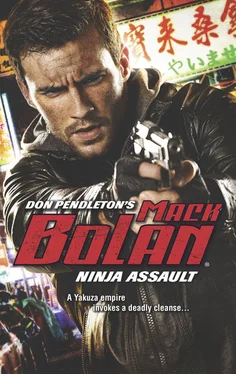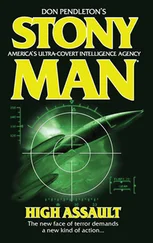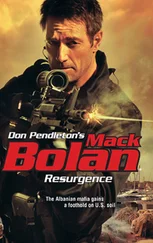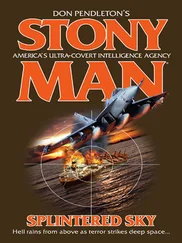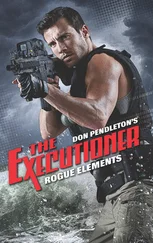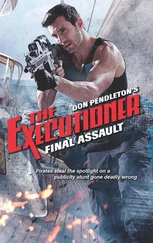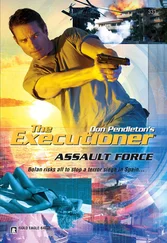Back in 2005, Forbes magazine had called Atlantic City “dangerous and depraved,” boasting a crime rate triple that of any other US city, double on the murder rate. While gross gambling revenue increased each year, the number of casino jobs declined.
AC had bet its future on the gaming tables. Some would say the town had lost its soul.
Of course, it hadn’t started in the seventies, by any means. That was the era when casinos had been legalized—controlled, in theory, by the guardians of civilized society. Supporters of the scheme had looked at Vegas, saw the neon and the bottom line without considering the downside, and had rushed ahead to claim their places at the trough. But vice had put down deep, abiding roots decades before a modern crop of architects had dreamed the Taj Mahal or the Borgata, run by men who settled scores with lead, instead of million-dollar lawsuits.
Atlantic City was the midwife to America’s crime syndicate, born on that very boardwalk, Bolan knew, during May of 1929, when every hood who mattered in the eastern half of the United States had come to hammer out their plans for the remaining years of Prohibition. Those who weren’t invited had been killed within a year or so, clearing the dead wood as a younger generation rose to claim its due.
Bolan was standing outside Nero’s when another tall man stopped beside him, frowning from the shadow of a gray fedora. “Penny for them,” said the new arrival.
“I keep watching out for Nucky Johnson.”
“Thompson.”
“Johnson,” Bolan said again. “They changed it for the TV series.”
“Ah. Wrong century, regardless,” Hal Brognola said.
They shook hands, old friends and combatants in a struggle that would outlast both of them. They knew the rules, expected no heavenly trumpets to declare their final victory and took it one day at a time.
“So, this is where it all went down,” Brognola said, tilting his head back, squinting at the sharp metallic gleam of penthouse windows high above, where seagulls wheeled and screamed.
“The Wolff thing,” Bolan said.
“None other. Four dead in the penthouse, three more from security before the hit team made it all the way upstairs.”
“Messy.”
“But quiet,” Brognola replied. “They knew what they were doing. Never fired a shot.”
“On CNN, they’re talking stab wounds.”
“Make that sword wounds, and you’ve got it right.”
Bolan had no response to that. He waited, knowing the big Fed would get around to it in his own time.
“You know much about Tommy Wolff?” Brognola asked.
“A younger version of The Donald or Steve Wynn. More cash than he could spend in twenty lifetimes.”
“And he didn’t even manage one.”
“I’m guessing that the Bureau and the state police are on it.”
“Absolutely,” Brognola agreed. “And getting nowhere.”
“Why’s that?”
“Well, for starters, Wolff and all the rest of them were killed by ninjas.”
“The real deal.”
“Looks like. Black tights and balaclavas, swords and split-toe shoes. It’s all on video.”
“So, no ID on any of the perps.”
“Not even close. They’ve got ICE working on it, too, the passport angle.”
“ICE” was Immigration and Customs Enforcement, part of the Homeland Security umbrella that had theoretically shielded America from foreign attacks since September 2011. In practice, Bolan knew, safety required much more than uniformed guards and a roster of alphabet agencies.
“They’re thinking Japanese, then?” Bolan asked. “Ninja originals?”
“Why not? We know they’re out there.”
Right. Bolan had faced some personally, once upon a time, and lived to tell about it. If he was allowed to tell. If anybody would believe it.
“So?”
“I sent a coded file to your smartphone, when you get a chance to take a look,” Brognola informed him. “Same password as usual.”
“You want to run the basics past me?”
“Abridged version, Wolff had been negotiating with a company in Tokyo to build a Nero’s Far East, matching this one, the joint he’s got—well, had —in Vegas, and the Nero’s San Juan, down in Puerto Rico.”
“There’s no legit casino gambling in Japan,” Bolan stated.
“Say he was hopeful, betting on a sea change.”
“Or he had some other kind of action in the works.”
“Or that.”
“Which was it?”
“All I hear, so far, is that he’d stepped on certain toes in Tokyo. The Sumiyoshi-kai, for starters.”
“Big toes, then.”
“And highly sensitive.”
The Sumiyoshi-kai was Japan’s second-largest Yakuza family, claiming some twenty thousand oath-bound members and at least that many hangers-on. As number two, they tried harder, chasing the larger, stronger Yamaguchi-gumi, while the Inagawa-kai snapped at their heels.
“Still, taking out a guy Wolff’s size, with his high profile…”
“Sends a very public message,” Brognola filled in for him.
“Why do I get the feeling this isn’t a one-off?” Bolan asked.
“Because you know your way around. Six months ago, out in LA, Merv Mendelbaum dropped out of sight. He hasn’t surfaced yet. The family’s been sitting on it, but they’re lawyered up and getting out the carving knives.”
“That’s Mendelbaum of Goldstone Entertainment?”
Brognola nodded. “Owner of casinos in Las Vegas, Reno, one up in New London and another in Biloxi.”
“So, coincidence?”
“Goldstone was also putting feelers out to Tokyo, feeling its way around the National Diet, schmoozing with the prime minister and leaders of his party.”
“More toes bruised,” Bolan surmised.
“The Yakuza likes things the way they are, most forms of gambling banned but readily available through outlets they control. They stand to lose a fortune—not a small one—from another US occupation.”
“What about their operations stateside?”
“They’d love to have a stake in gambling where it’s legal, if they don’t lose anything at home. Right now, they mostly smuggle methamphetamine and heroin into the States, and take guns home.”
Bolan knew that Japan’s gun control laws ranked among the world’s strictest. Police estimated there were 710,000 firearms in civilian hands, scattered among 128 million citizens—or one gun for every 180 Japanese. America, by contrast, had at least 270 million guns floating around the civilian population, one for every 1.2 men, women and children. The upshot was 32,000 gun deaths per year in the States, versus eleven annually in Japan.
Coincidence?
Unlikely.
Bolan brought his mind back to the topic on the table. “So, the Sumiyoshi-kai could benefit from taking out a few top men,” he said. “Keep US gaming corporations out of Tokyo and cause a power vacuum over here.”
“It cuts both ways,” Brognola said. “Just like a sword.”
“Suspects?”
“They’re listed in the file I sent you, but we don’t have any solid evidence. The Sumiyoshi-kai had kyodai —‘big brothers,’ similar to capos in the Mafia—both here and in Las Vegas. If the family killed Wolff and Mendelbaum, they’ll be the place to start.”
Brognola didn’t have to say the rest, but Bolan looked downrange. “What about carrying the fight back home?” he asked.
“It’s not my place to second-guess a soldier on the ground,” the big Fed said. “But obviously, if we have a chance to make the problem go away, at least for now…”
He let the sentence trail off, staring up at the casino. There was no need to explain what both of them already knew from long experience.
The predators would never be eradicated. Some defect within humankind itself produced a new crop every time the old one was cut down. Evil could be beaten down and held at bay, but it could never be extracted from the human genome. There was no cure, no inoculation, for the plague of avarice and cruelty that lurked behind the thin facade of “civilized” society.
Читать дальше
